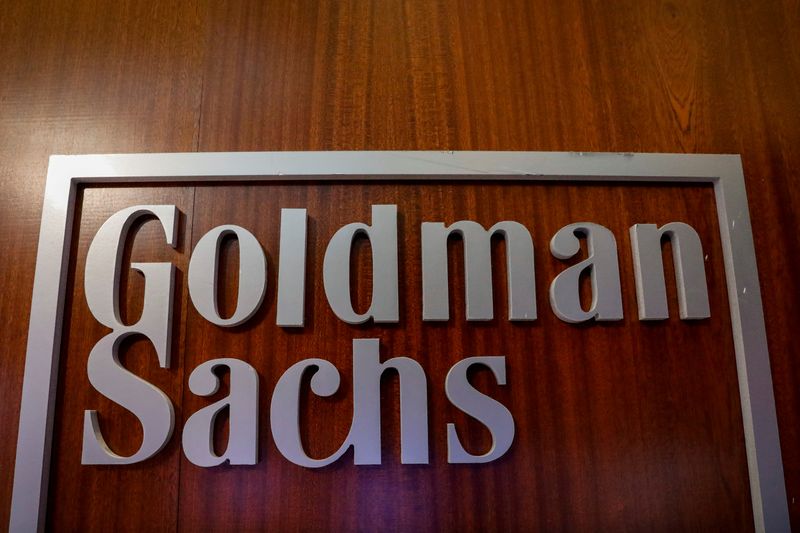BOSTON/NEW YORK (Reuters) – Influential proxy adviser Institutional Shareholder Services has recommended investors cast advisory votes against the pay of top Goldman Sachs Group Inc <GS.N> leaders, putting millions of dollars of compensation under scrutiny at a time when the COVID-19 pandemic has led to soaring unemployment.
In a report dated April 9 and provided on Thursday in response to a request from Reuters, ISS wrote it had “pay-for-performance misalignment concerns” regarding Goldman leaders including David Solomon, chief executive of the Wall Street bank, which has an annual meeting set for April 30.
Technically the pay was awarded for Goldman’s performance in 2019, a period for which Solomon’s total compensation rose 19% to $24.7 million, including a $7.65 million bonus.
But in practice many investors will also evaluate the pay in the context of the current economic crisis stemming from the pandemic, said Yonat Assayag, partner at pay consultant ClearBridge Compensation Group.
A stunning 26.5 million Americans have sought unemployment benefits since mid-March, according to the latest Labor Department figures released on Thursday, wiping out all the jobs gained during the longest employment boom in U.S. history.
“Shareholders will have that in their minds,” Assayag said. She added, “That’s where it becomes a bit of a conundrum, because the decisions for bonuses were based on prior year’s financial results.”
As a cash crunch takes hold, hundreds of executives at other U.S. companies across nearly every economic sector have taken salary cuts and outlined further pay reviews as the scope of the crisis becomes clear.
Top banks in late March sought to reassure staff that they would not cut jobs.
And last week, Goldman executives said they were focused on controlling costs and may reevaluate the “timing, magnitude and pace” of expenses and investments this year.
ISS wrote that its concerns about Goldman “are underscored by a significantly increased CEO bonus for a period when several key financial metrics were down year-over-year.” The company’s pay programs appear to give its directors too much discretion, ISS wrote.
Goldman Sachs spokesman Patrick Scanlan said the bank’s compensation structure incentivized long-term growth and the meeting of financial targets, and did not place “undue emphasis on shorter term results.”
“Compensation for 2019 reflects the significant achievements of our executives, including the development of a long-term growth strategy, implementation of a new operating approach, and consistent, solid net revenue performance,” Scanlan said.
Solomon’s 2019 raise stood out among compensation packages for CEOs at top U.S. banks.
Though the banks mostly ended the year with near-record profits, executive compensation remained stagnant as boards became more cost-conscious, reflecting a weaker revenue outlook.
JPMorgan Chase & Co <JPM.N> raised its CEO’s pay by 1.6%, while Bank of America <BAC.N> and Citigroup <C.N> held CEO pay flat. ISS has recommended investors support pay proposals at the latter two banks, while its report for JPMorgan is not yet out.
ISS recommended Goldman investors vote with management on other items, including backing the election of all directors, including Solomon.
(Reporting by Ross Kerber in Boston and Elizabeth Dilts Marshall in New York; additional reporting by Imani Moise. Editing by Dan Grebler and Rosalba O’Brien)






















